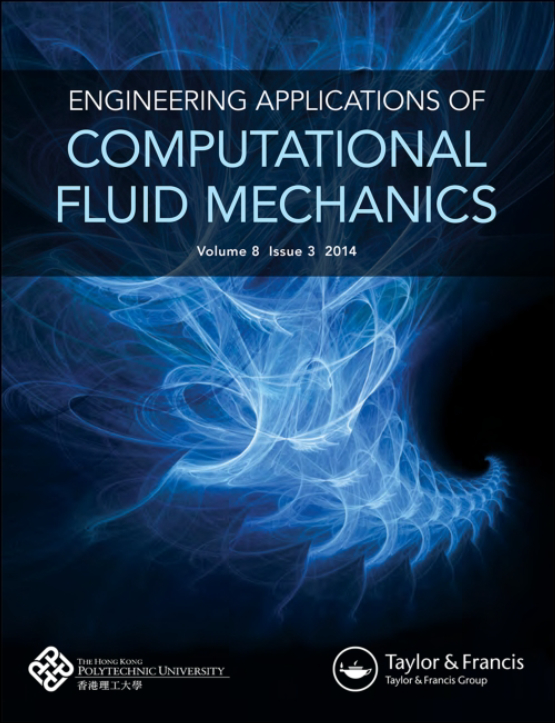Submit a Manuscript to the Journal
Engineering Applications of Computational Fluid Mechanics
For an Article Collection on
Advances in Computer Modelling of Water-Related Disasters
Manuscript deadline


Article collection guest advisor(s)
Dr. Jinghua Wang,
The Hong Kong Polytechnic University
Jinghua.wang@polyu.edu.hk
Prof. Linlin Li,
Sun Yat-Sen University
lilinlin3@mail.sysu.edu.cn
Prof. Mingfu Guan,
The University of Hong Kong
mfguan@hku.hk
Advances in Computer Modelling of Water-Related Disasters
Climate change, rapid urbanization, and population growth are posing tremendous challenges to worldwide coastal cities. In particular, extreme weather events are becoming more frequent and intensified, leading to devastating precipitation, typhoons, and storm surges. Additionally, new challenges also emerge owing to the concurrent meteo-geohazard, such as the alarming storm-tsunamis. These water-related disasters and the resulted chain effects can induce severe flooding, landslides, and other derivative hazards in both coastal and inland regions, which significantly undermine economic stability, societal well-being, and environmental health. Despite on-going efforts, challenges persist due to our limited understanding and considerable uncertainties in the forecasting technology as well as in the risk assessments.
To alleviate the growing threats posed by extreme climatic events, governments and policymakers all over the world have put great emphasis on the innovative solutions and best practices for preventing and mitigating water-related disasters, with the aim of establishing sustainable and resilient coastal cities. To this point, research communities worldwide are prioritizing several key areas including improving forecasting and modelling, risk assessment, mitigation strategies, sustainability and resilience, etc., in order to gain insight of the climate change impacts. Yet, this is a nontrivial task and must be achieved through collective efforts of multi-disciplinary researchers by using state-of-the-art modelling tools.
In light of the unpreceded challenges, it is timely to call for a collection of research articles focused on the recent advances in computer modelling of water-related disasters. The potential topics are not limited to the applications of numerical hydrodynamic models, whilst original works based on other cutting-edge computer models including artificial intelligence are also welcome. The ultimate goal of this special collection is to highlight the research frontier in water-related disasters and to communicate the latest findings in this field.
Keywords: Compound hazards, Disaster forecast, Risk quantification, Computational Fluid Dynamics, Artificial intelligence
Manuscript Submissions:
Manuscript submission is open until 30th August 2025.
Please carefully review the journal scope and author submission instructions prior to submitting an abstract as it will be rejected if it does not fall within the scope of the journal.
All manuscripts submitted to this Article Collection will undergo desk assessment and peer-review as part of our standard editorial process. Manuscripts which do not fall within the scope of the journal will be rejected.
To submit your papers to this Article Collection, please:
- Check "yes" for the question, "Are you submitting your paper for a specific special issue or article collection?"
- Select the relevant Article Collection from the drop-down menu under the question, "Advances in Computer Modelling of Water-Related Disasters"
Remember to include the 10% Discount code: TCFM-2025-C31176 at the point of submission before you submit your manuscript as discount codes cannot be applied retroactively.
We do have a limited amount of 20% Discount codes only available for those who are able to submit an Abstract. It should be noted that discount codes cannot be combined and that only the higher discount would be applicable.
Please contact Christopher Montgomery, Commissioning Editor, with any other queries and discount codes regarding this Article Collection.
Article Collection Guest Advisors
Dr. Jinghua Wang works as an Assistant Professor at the Department of Civil and Environmental Engineering at The Hong Kong Polytechnic University. His research focuses on oceanic and coastal disasters with emphasis on the phenomenon such as rogue waves, storm surge and tsunamis
Prof. Linlin Li and her research team at the Sun Yat-Sen University are specialized in research on the formation mechanism and characteristics of the submarine disaster chain: earthquake-landslide-tsunami using a multi-disciplinary approach including structural geology, geophysics and computational fluid mechanics.
Prof. Mingfu Guan is an Associate Professor at the University of Hong Kong. His research interests include river hydraulics, sediment transport, green infrastructures, urban and catchment hydrology, climate change and their modelling techniques.
Benefits of publishing open access within Taylor & Francis
Global marketing and publicity, ensuring your research reaches the people you want it to.
Article Collections bring together the latest research on hot topics from influential researchers across the globe.
Rigorous peer review for every open access article.
Rapid online publication allowing you to share your work quickly.
Submission Instructions
Article Publishing Charges:
The standard article publishing charge (APC) for this journal is £2100/US$2630/€2520/AUD$3655, plus VAT or other local taxes where applicable in your country. There is no submission charge.
Please visit the APC Cost Finder page to find the APC applicable to your specific country and article type.
If you are based at an institution or associated with a funder that has an open access publishing agreement with Taylor & Francis, you might be eligible for APC support. Please see details here.
We offer discounts and waivers for authors in developing countries as defined by the World Bank, either 50% or 100% depending on where the institution of the corresponding author is located. Please see details here.
We will consider requests for discretionary waivers from researchers who aren’t eligible under the above policies. Please note that discounts must be applied at the Charges stage of the submission process when the APC quote is confirmed and may not be considered after submission.
If you have any questions about eligibility, please use the Contact Us form.
All manuscripts submitted to this Article Collection will undergo desk assessment and peer-review as part of our standard editorial process. Guest Advisors for this collection will not be involved in peer-reviewing manuscripts unless they are an existing member of the Editorial Board. Please review the journal Aims and Scope and author submission instructions prior to submitting a manuscript.
